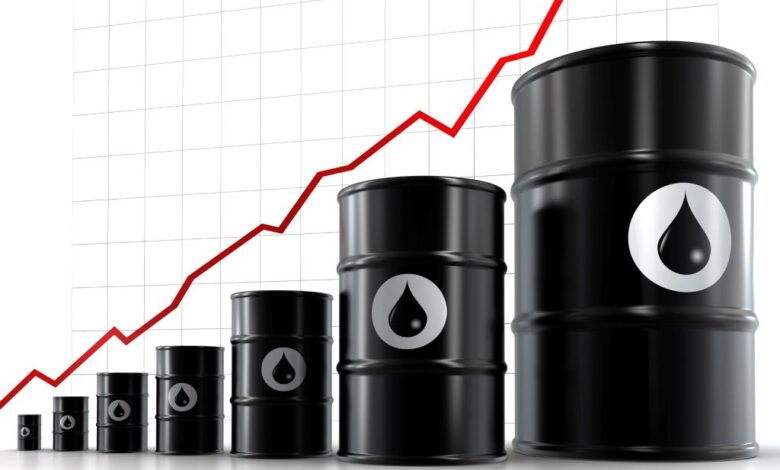Russia May Push Oil to $125 PB, Double Loss for Nigeria


Oil prices are rising and it seems nothing will bring them down soon. Brent prices increased by 50% in 2021, while WTI prices increased by nearly 60%, as the global resurgence in demand following the development of vaccines for the new coronavirus epidemic and exits from lockdowns pressured supplies.
“Producing 302,000 barrels per day short of its OPEC quota means that Nigeria has to look for $27.18 million (based on today’s $90 PB price) every day to subsidise daily consumption of 1.4 million barrels per day”.
At the moment, the global crude oil benchmark, Brent has beaten its 7-year performance as it crossed the $90/barrel line and has risen over 53% on year-to-date performance. The bullish run of crude oil is being spurred by demand and supply cum geopolitical factors.
The $90 price has outperformed numerous forecasts by analysts and top investment banks at the start of the year. Energy analysts are now predicting that the price of crude oil will surpass $125 per barrel, owing to the commodity’s month-on-month increase of more than 10%.
Crude Oil has recovered from yesterday’s losses as Russia announced a partial troop withdrawal from Ukraine. Brent crude is currently selling at $95 per barrel as of 3:00 p.m. Lagos State time on Wednesday, as tensions between Russia and Ukraine remain high, coupled with ongoing supply constraints from oil producers.
What is Driving Crude Oil Prices?
- The latest news impacting the crude oil market is the geopolitical tension between Ukraine and Russia which has heightened supply and price risks. Russian invasion of Ukraine will disrupt crude oil supplies in the Eurozone since Russia supplies approximately 40% to 50% of Europe’s oil and gas. Furthermore, the possibility of an invasion of Ukraine would almost certainly result in economic sanctions from the United States and its European allies. This could lead to global oil and gas shortages and, as a result, higher energy prices.
While Russia has announced a partial pullback of troops from Ukraine’s borders and has rejected the assumption of an impending invasion, NATO leaders and US President Joe Biden insists that the risk of war remain high as Russia continues to build up its military on the Ukrainian border.
- Increased fuel demand from households and businesses has exacerbated global inflationary pressures as a result of the rapid rebound in global economic activity post COVID-19 lockdowns. Fuel prices in the United States increased by 5 % month over month in January 2022, and petrol prices in the United Kingdom are 23.6 % higher year over year.
- Limited production capability, such as OPEC+’s inability to meet its current production increase of 400,000 barrels per day, due to African members of the group falling short of their crude oil output targets, such as Nigeria, Angola, Equatorial Guinea, and Congo. In addition, supply imbalances in the crude oil market have been aggravated by disruptions in Libyan output, UAE drone attacks on Yemen, continuous declines in US Crude oil WTI inventories, Kazakhstan protests, and the country’s decision to reduce crude oil supplies to combat rising fuel prices locally.
How investors are reacting to the oil market
Oil prices are not only surging on the international market; oil businesses are reaping huge profits as a result of the price increase, and investors are flocking to oil-related equities. Analysts around the world are placing a buy recommendation on crude oil exposed equities as global inflation continues to rise, with crude oil being one of the reasons behind price increases (fuel price hikes in the US, EU, and the UK, gasoline scarcity in Nigeria). The S&P 500 Energy Sector Index is up more than 50% year-over-year, due to rising global fuel demand, supply bottlenecks, and a significant migration of investors into energy companies. Additionally, energy stocks like BP, Shell, and Total have seen year-to-date price increases of 22.01%, 19.19% and 18.11%, respectively.
Oil businesses listed on the floor of the Nigeria Exchange Limited (formerly the Nigerian Stock Exchange) are enjoying a price spike, similar to their worldwide counterparts, as domestic investors flock to energy stocks. In 2022, the NGX Oil and Gas Index, which tracks Nigerian oil and gas stocks, is up 22.89%. Seplat, Conoil, and Total Nigeria, all oil and gas stocks trading on the Nigerian stock exchange, have seen year-to-date price increases of 30.%8, 20.5% and 19.4 % respectively.
Double Loss for Nigeria
Nigeria has been underproducing crude oil by 302,000 barrels per day below its OPEC quota of 1.68 million barrels pd. This means that Nigeria is failing to benefit from the rise in the price of crude oil while the volume of imported refined oil it consumes remains constant at 1.4 million and the cost of subsidising the imported fuel rises. The subsidy means that Nigeria is failing to invest the about $22 million it has gained daily from 1 January 2022 to 16 February 2022 when the average price of oil in this period is compared to the average price between 1 January 2021 and 16 February 2021. Producing 302,000 barrels per day short of its OPEC quota means that Nigeria has to look for $27.18 million (based on today’s $90 PB price) every day to subsidise daily consumption of 1.4 million barrels per day.







